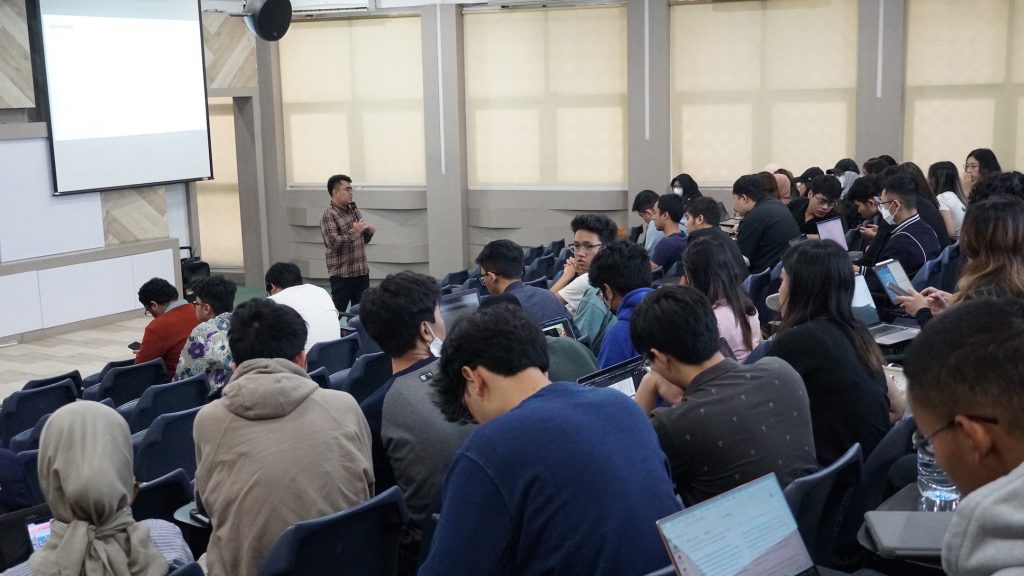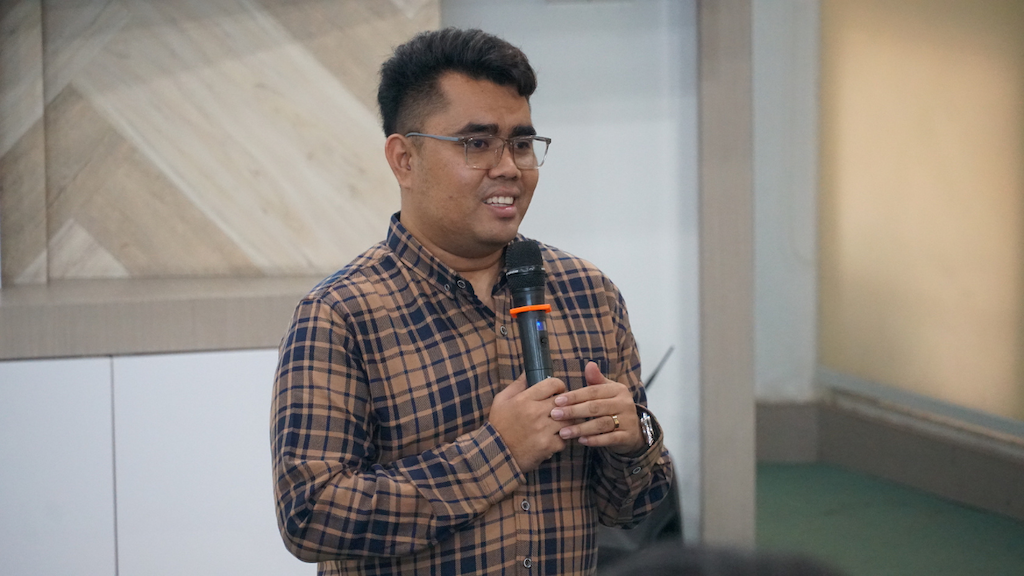Today, people’s mindsets have significantly changed due to globalization impacting various aspects of life. Consequently, business professionals must possess the capacity to formulate intelligent business strategies. This is imperative to ensure their sustainability and effectively overcome challenges.
A set of corporate standards about investing has emerged to serve as a guide for everyone. This tool is a framework to analyze various non-financial risks and opportunities within the company’s operations. The tool is the ESG alias sustainable business guidelines by the principles that protect the environment (E), social (S), and governance (G).
The challenge for the business world to align with ESG was conveyed by Fauzan Raudhatul Hayat in a guest lecture for the Business Sustainability Management and Agile Organizations course at the SBM ITB on July 25 2023. Fauzan is now West Java Regional CM SEEK, an online-based job market company in Australia.
According to Fauzan, there are four main reasons why the concept of ESG is essential to be included in the formulation of business strategy. First, maximizing operational efficiency. Second, improving the company’s reputation. Third, reducing risk. Finally, optimizing financial performance and enabling new opportunities for business growth.
The ESG itself consists of environmental, social and governance criteria. The elements of governance in ESG include transparency, financial management that meets accounting standards, compliance with regulations, and not being involved in illegal activities so that there is no conflict of interest in selecting members of the board of directors or commissioners.
The social criteria show how the company considers its relationship and reputation with its stakeholders and how it fosters its stakeholders, including employees, suppliers, consumers, society, society and related parties from the company. Social elements include selecting suppliers with ESG policies and practices, recognition of diversity and inclusivity, gender equality, respect for human rights, fairness of pay and work environment, and assurance to consider stakeholder input and expectations of the organization.
The environmental criteria discuss how the company considers the impact of business operations on the environment and the company’s role as a guardian of the environment. Environmental elements include the use of environmentally friendly or renewable energy, commitment to reduce greenhouse gas emissions, waste management to avoid pollution, participation in the conservation of irreplaceable nature, and fair and non-arbitrary treatment of animals.
Fauzan admitted that many companies find it challenging to implement ESG standards due to cost, stakeholder support, and difficulties in measuring performance. Companies must invest significant financial and human resources, communicate effectively, and have transparent measurement systems to assess social and environmental impacts. Steps that can be taken to address these risks and challenges include identifying and assessing existing risks, using data to manage ESG risks, integrating ESG into business strategy, engaging stakeholders, and monitoring and reporting on ESG performance. Fauzan also highlighted several companies in Indonesia succeeding in implementing ESG principles, such as OYO, Indosat, OLX Autos, and others.





